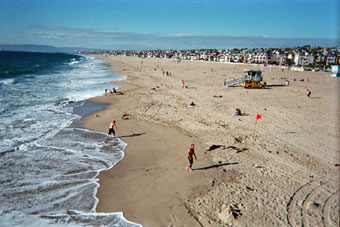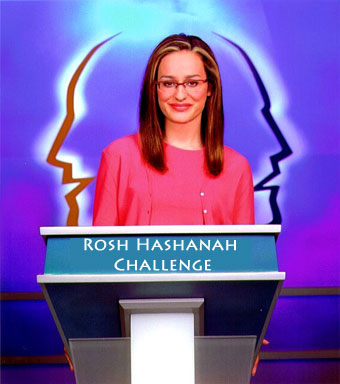It was a rainy Rosh Hashanah in New York City. It was the second year I was attending a progressive service in Manhattan, one in which God’s name was rarely spoken and there was discussion about getting a vegan shofar made of plastic for next year, instead of the one used by Jews for thousands of years, made from a ram’s horn.
Rosh Hashanah, the Jewish new year, is a time of reflection. Jews look back on the past year, and prepare themselves for being “inscribed into the book of life” on  Yom Kippur, when the “book is closed.”  Jews — they are into metaphors involving books.
Halfway into the service, the rabbi turned her attention to the congregation.
“How have we all used our time over the past year?” she asked. Â “Have we done good deeds? Have we been of service to society?”
One congregant immediately rose her hand. Â Â Clearly she was once the teacher’s pet in third grade.
“I volunteer at a homeless shelter twice a week and joined the Central Park Conservancy executive committee.”
The rabbi nodded in approval. Â The rest of us clapped, honoring her service.
A younger man stood next; he wore a yarmulke colored like the LGBT flag.
“I directed a film for marginized teenagers.  It was shown in the public schools throughout New York City schools, and I believe it has helped many overcome their personal shame.”
More applause.
The next two sharers helped run a successful fundraiser for a cancer clinic at a hospital and organize last week’s People’s Climate Change March on Wall Street.
The mood in the room took a surprising silent dive after these four congregants shared their good deeds. Â There was a tangible feeling of embarrassment about our own accomplishments over the last year. Â The moment reminded me of that feeling you get on on Facebook when you read about someone’s exotic vacation in Costa Rica, and you don’t want to tell anyone about your low-key Thanksgiving at your Aunt Mildred’s home in New Jersey. Â How can you compete?
“How have we all used our time over the past year? Have we done good deeds? Have we been of service to society?”
These were the questions of the rabbi. Â Good questions. Â Questions aimed at making us think about how we treat our fellow man. Â But the first four responses sounded more like references you would add to your college application.
It took an older woman to break the ice. She stood up to face the rabbi. Â She was wearing a green wool dress that added color to her short gray hair.
“Well, just last night, a friend called up and said she was having an anxiety attack about her granddaughter in California, so I got dressed, took the cross-town bus over and talked with her until she calmed down.”
Some of us giggled, because it was a rather absurd example in comparison to the others, but then we all applauded, sensing her wisdom. She had expanded upon our definition of a good deed, so it included the small and personal as much as those larger actions that are part of the public record.
And suddenly others stood up, energized by the older woman.  One by one, congregants  mentioned minor actions, decisions, and choices that would never make the newspapers or news, but made their past year one of good deeds, their existence worth living.
Last week, I watched the PBS documentary on the Roosevelts. Â Their accomplishments were fascinating. Â FDR was Governor of New York and President of the United States. He created the New Deal and Social Security. He led us out of the Depression AND World War 2. Â But would FDR have taken the cross-town bus to calm down a friend having an anxiety attack? Â I don’t think so.
Lyrics from Seasons of Love from the musical, Rent.
Five hundred twenty five thousand six hundred minutes
Five hundred twenty five thousand moments
Five hundred twenty five thousand six hundred minutes
How do you measure, measure a year?
In daylights, in sunsets
In midnights, in cups of coffee
In inches, in miles, in laughter, in strife
In five hundred twenty five thousand six hundred minutes
How do you measure, a year in the life?
How about love?







 Â
 
 Â
 




